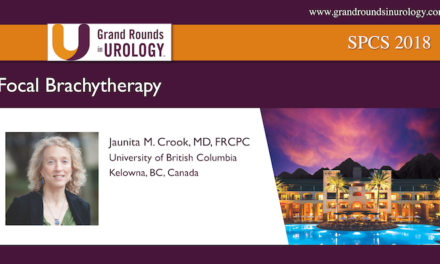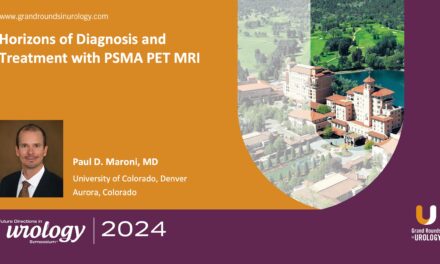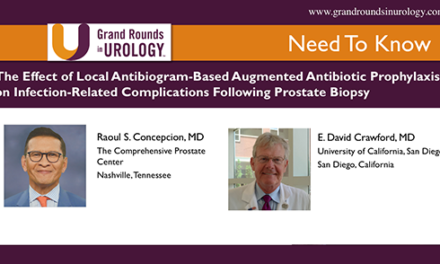Daniel J. George, MD, presented “Relugolix and Concomitant Treatment for Advanced Prostate Cancer” for the Grand Rounds in Urology audience in April 2021.
How to cite: George, Daniel J. “Relugolix and Concomitant Treatment for Advanced Prostate Cancer” April 2021. Accessed Jan 2026. https://grandroundsinurology.com/relugolix-and-concomitant-treatment-for-advanced-prostate-cancer/
Summary:#
Daniel J. George, MD, Professor of Medicine and Surgery, Divisions of Medical Oncology and Urology in the Duke University School of Medicine, comments on research presented at the 2021 GU ASCO conference about the recent approval of Relugolix and concomitant therapies. He first notes the results of the HERO trial in which Relugolix was shown to be superior to Leuprolide in continuous suppression of testosterone levels in men with advanced prostate cancer. As a follow up to the study, researchers looked at a subset of patients who received concomitant treatment, either radiation therapy to metastatic or primary disease site or drug therapy with Docetaxel or Enzalutamide. Dr. George highlights that patients on Relugolix and additional drug therapy had continued testosterone suppression equal to those on Relugolix alone and lower testosterone levels than patients on Leuprolide. He adds that there were no safety concerns with regard to toxicity. Notably, the HERO trial found a 54% reduction in serious cardiovascular events between Relugolix and Leuprolide. In summary, the study suggests that Relugolix can be safely combined with other therapies and that additional research is needed.
For more on this topic, visit our Next Generation ADT Learning Center.
ABOUT THE AUTHOR
Daniel J. George, MD, FASCO, is the Director of Genitourinary Oncology for the Duke University Cancer Institute in Durham, North Carolina. Dr. George also serves as the Eleanor Easley Distinguished Professor of Medicine and Surgery in the Divisions of Medical Oncology and Urology at Duke University. His areas of research include new drug development and biomarkers of GU cancers with an emphasis on health disparities. Dr. George specializes in cancers of the prostate, kidney, bladder, and testis. He has a particular interest in emerging therapies as well as diagnostic tests and markers of cancer biology, and immuno-oncology agents and targeted therapies.





